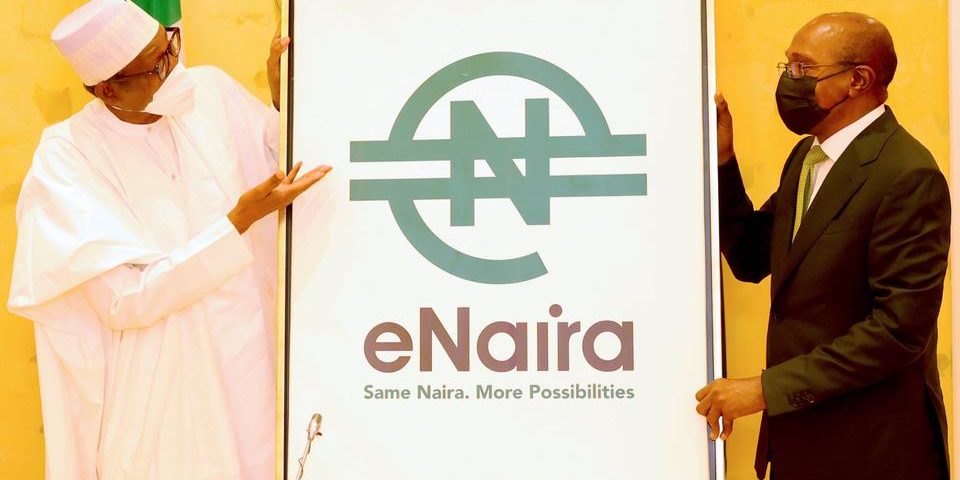Nigeria becomes the first African nation to roll out digital currency

TANZANIA’S PRESIDENT HACKS FRIEND OUT OF MINISTERIAL POSITION OVER TAX EVASION
June 2, 2017
SMALL BUSINESS TAXATION IN NIGERIA
September 5, 2022The Central Bank of Nigeria joined a growing list of emerging markets betting on digital money to cut transaction costs and boost participation in the formal financial system.
“Nigeria has become the first country in Africa, and one of the first in the world to introduce a digital currency to her citizens,” President Muhammadu Buhari said in televised speech at the launch in Abuja, the capital. “The adoption of the central bank digital currency and its underlying technology, called blockchain, can increase Nigeria’s gross domestic product by $29 billion over the next 10 years.”
The International Monetary Fund projects GDP for Africa’s largest economy to be $480 billion in 2021.
The issuance of the digital currency, called the eNaira, comes after the central bank earlier in February outlawed banks and financial institutions from transacting or operating in cryptocurrencies as they posed a threat to the financial system.
Since the launch of the eNaira platform, it’s received more than 2.5 million daily visits, with 33 banks integrated on the platform, 500 million c ($1.2 million) successfully minted and more than 2,000 customers onboarded, central bank Governor Godwin Emefiele said at the launch.
Central bank digital currencies, or CBDCs, are national currency — unlike their crypto counterparts, such as Bitcoin and Ethereum, which are prized, in part, because they are not tied to fiat currency. The eNaira will complement the physical naira, which has weakened 5.6% this year despite the central bank’s efforts to stabilize the currency.
“The eNaira and the physical naira will have the same value and will always exchange at one naira to one eNaira,” Emefiele said.
The digital currency is expected to boost cross-border trade and financial inclusion, make transactions more efficient as well as improve monetary policy, according to the central bank.
“Alongside digital innovations, CBDCs can foster economic growth through better economic activities, increase remittances, improve financial inclusion and make monetary policy more effective,” Buhari said. Digital money can also “help move many more people and businesses from the informal into the formal sector, thereby increasing the tax base of the country,” he said.
The Central Bank of Nigeria in August selected Bitt Inc. as a technical partner to help create the currency that was initially due to be introduced on Oct. 1.
Nigeria joins the Bahamas and the Eastern Caribbean Central Bank in being among the first jurisdictions in the world to roll out national digital currencies. China launched a pilot version of its “digital renminbi” earlier this year. In Africa, nations from Ghana to South Africa are testing digital forms of their legal tender to allow for faster and cheaper money transactions, without losing control over their monetary systems.



